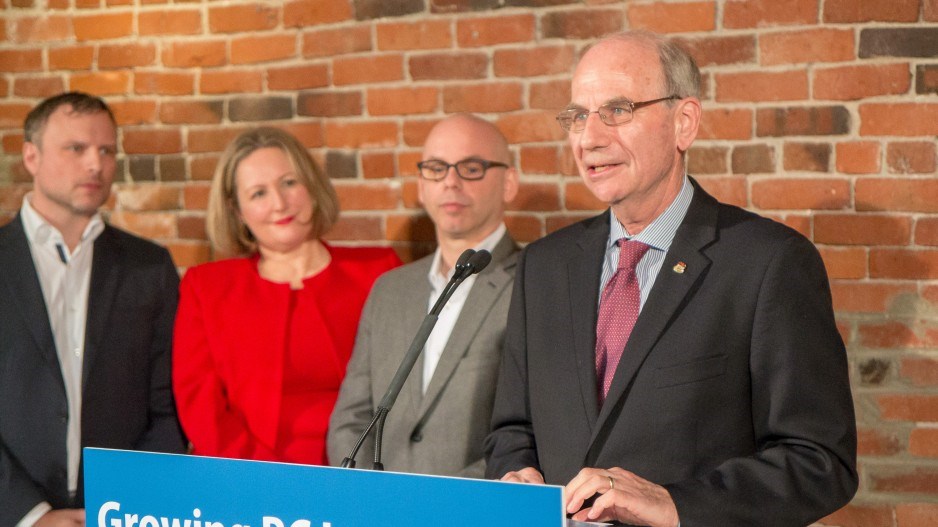Alan Winter admits facing a bit of a learning curve after taking over the job as B.C.’s first-ever innovation commissioner one year ago.
His resumé includes serving as CEO of Genome BC and MPR Teltech Ltd., the latter of which spun off companies such as PMC-Sierra and Sierra Wireless (TSX:SW).
Navigating the sometimes Byzantine nature of the innovation industry wasn’t ever the question hanging over his office.
It had more to do with what his office’s raison d’être was.
“The mandate is still a work in progress,” said Winter, who has been reappointed by order-in-council for a second one-year term beginning February 5.
“Part of my job this year particularly is trying to make sure the senior people in Ottawa I’ve developed relationships with understand that we do have some areas of emerging interest here.”
Federal-provincial overlap on quantum computing, fusion power, blockchain, precision medicine and ocean science will be at the top of the agenda moving forward.
The creation of an innovation commissioner itself was among the requirements laid out in the May 2017 confidence and supply agreement between the BC NDP and the BC Green Party.
However, details of the commission and its leader’s duties were not hammered out when the agreement was made.
By the time Winter was named commissioner nine months later, it was made clear he’d focus on relationship building with senior government leaders in Ottawa and with B.C.’s technology and innovation community.
He was also charged with building partnerships between B.C. and Washington state technology communities as part of efforts to develop the Cascadia Innovation Corridor.
“He’s given me some pretty good advice,” said Jobs, Trade and Technology Minister Bruce Ralston.
He said the commissioner’s office has been influential in pointing the province to more federal programs it hadn’t previously been taking advantage of.
“He particularly knows the federal bureaucracy well in the sense [of] being the leader of Genome BC for a number of years,” Ralston said, adding that Winter has carved out a solid reputation among federal officials.
BC Green Party Leader Andrew Weaver, who meets with the innovation commissioner once a month, said he was delighted when Winter was appointed.
“He brings enormous credibility to the position – highly regarded as a scientist, highly regarded as a scientific leader, highly regarded as understanding innovation as well as playing an instrumental role in a number of different initiatives.”
Weaver said the innovation commissioner’s office should remain autonomous, but he could imagine it playing a role in everything from reducing administrative barriers facing companies to helping the province become more competitive.
“We can’t compete straight up, head to head, with a mine here versus somewhere else in terms of labour costs,” Weaver said, adding that the province could better facilitate the development of clean technologies to improve mining efficiency. “We also have the value-add of selling that knowledge and expertise.”
Meanwhile, Winter said one of the biggest successes over his first year as commissioner was being part of the collective effort to get funding in place for the B.C.-based Digital Technology Supercluster.
He became commissioner shortly before Ottawa gave the B.C. bid the green light, but it took nearly 10 months until the federal government divvied up the exact dollar figures among the nation’s five superclusters.
The Digital Technology Supercluster now has $153 million to jump-start collaborations and projects among an estimated 1,000 organizations over the next decade.
Following nearly 170 meetings with organizations, Winter’s first report, Observations on Innovation in British Columbia, concluded he should focus efforts on increasing business-led innovation.
The report also noted B.C. faces challenges boosting its profile in Ottawa to leverage additional funding, owing much to geography and the relatively low number of senior officials with roots on the West Coast.




